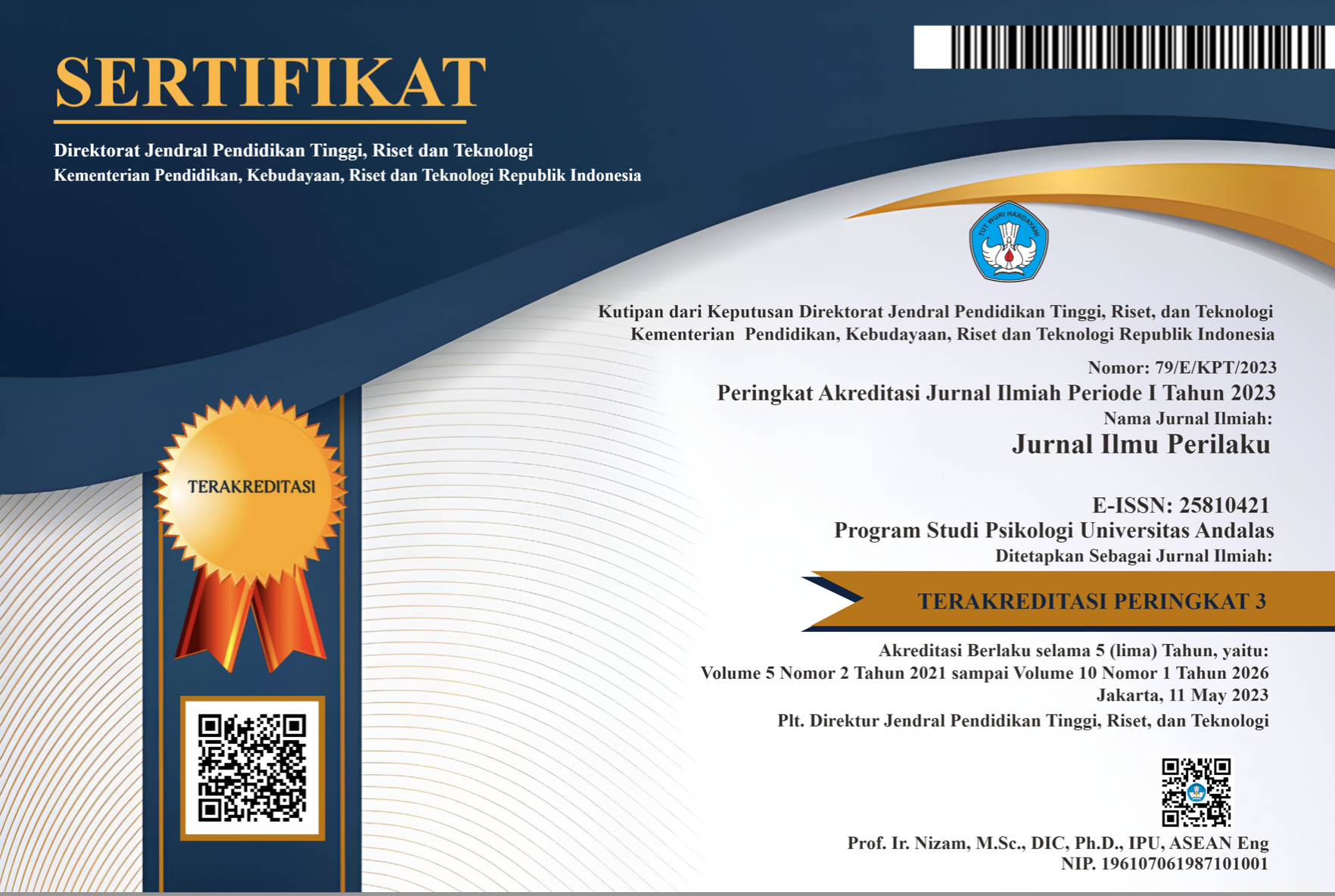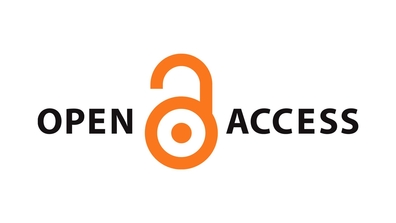Efektifitas Assertiveness Training untuk Siswa Sekolah Menengah Pertama (SMP)
Abstract
Abstract. This research is aimed to improve early adolescent student’s assertiveness. Hypotheses in this research is . Experimental research design is used by implementing randomized pretest-posttest control group design. The subjects are students of VIII SMPK at Malang, 30 students for experimental group and 30 students for control group. Assertiveness scale is used to measure the level of assertiveness which has 27 items with the realibility index is 0,729. Assertiveness training module has been written as the procedure to guide its process. Paired sample t-test and independent sample t-test are used to analyze the data. The results show significance score 0,000 < 0,005 that means there are differences between pretest-posttest and groups. Moreover, the effect size result shows 0,93 that means the treatment gives a big effect for student’s assertiveness. Therefore, it can be concluded that assertiveness training is effective to improve student’s assertiveness.
Downloads
References
Ahmed, S. (2009). Method in Sample Surveys. Diunduh dari: http://ocw.jhsph.edu/courses/stat methodsforsamplesurveys/pdfs/lecture5.pdf tanggal 6 Desember 2016.
Alayi, Z., Khamen, A., Ahmadigatab, T. (2011). Parenting Style and Self-Assertiveness: Effects of A Training Program on Self-Assertiveness of Iranian High School Girls. Procedia – Social and Behavioral Sciences, 30: 1945-1950.
Aminudin, A. (2008). Perbedaan Keterampilan Asertif Siswa Kelas Reguler dengan Siswa Kelas Akselerasi di SMP Negeri 3 Malang. (Skripsi tidak diterbitkan). Fakultas Ilmu Pendidikan Universitas Negeri Malang, Malang
Azwar, S. (2010). Metode Penelitian. Yogyakarta: Pustaka Pelajar.
Baker, A. E. & Jeske, D. (2015) Assertiveness and anxiety effects in traditional and online Interactions. International Journal of Cyber Behavior, Psychology and Learning, 5 (3). pp. 30-46. ISSN 2155-7136. http://dx.doi.org/10.4018/IJCBPL.2015070103
Potts, C. & Potts, S. (2013). Assertiveness: How To Be Strong in Every Situation. Cornwall: Great Britain.
Damayanti, A. (2016). Pengaruh Metode Bermain Peran dan Video Psikoedukasi terhadap Perilaku Asertif pada Anak Usia Dini. (Skripsi tidak diterbitkan). Fakultas Pendidikan Psikologi Universitas Negeri Malang, Malang
Eslami, A.A. Rabiei, L. Afzali, S.M. Hamidizadeh, S. & Masoudi, R. ( 2016). The Effectiveness of Assertiveness Training on The Level of Stress, Anxiety, and Depression of High School Students. Iran Red Crescebr Med Journal, 18 (1).
Gregory, R.J. (2011). Psychological Testing: History, Principles, and Applications (6th Ed). Boston: Allyn & Bacon.
Herron, J. D. (1996). The Chemistry Classroom: Formula for Successful Teaching. United States of America: American Chemical Society.
Johnson, W. B & Kaslow, N. (2014). The Oxford Handbook of Education and Training in Professional Psychology. New York: Oxford University Press.
Keliat, B. A., Tololiu, T. A., Daulima, N. H. C., Erawati, E. (2015). Effectiveness Assertuve Training of Bullying Prevention among Adolescents in West Java Indonesia. International Journal of Nursing, 2 (1): 128-134.
Khalimatussa’diyah. (2011). Upaya Meningkatkan Asertivitas melalui Layanan Bimbingan Kelompok Pada Kelas IX SMP Negeri 1 Kandeman Kabupaten Batang. (Skripsi tidak diterbitkan). Fakultas Ilmu Pendidikan Universitas Negeri Semarang, Semarang
Kusumasari, R. N. (2015). Lingkungan Sosial dalam Perkembangan Psikologi Anak. Jurnal Ilmu Komunikasi (J-Ikom). 2 (1): 32-38.
Martin, D. W. (2007). Doing Psychology Experiments. Belmont: Wadsworth Publishing.
Meilena, T. & Suryanto. (2015). Self Disclosure, Perilaku Asertif dan Kecenderungan Terhindar dari Tindakan Bullying. Jurnal Psikologi, 4 (2): 208-215.
Moon, J. (2009). Achieving Success through Academic Assertiveness. New York: Routledge.
Nabila, A.I. Hardjono. & Nugroho, A.A (2012). Pengaruh Pemberian Pelatihan Asertivitas terhadap Kecenderungan Kenakalan Remaja pada Siswa Kelas X (SMK) Bhinneka Karya Surakarta. Jurnal Wacana Psikologi, Vol 4, No 8, 1-36. ISSN: 2085 - 0514
Niusha, B., Farghadani, A., Safari, N. (2012). Effectiveness of assertiveness training on test anxiety girl students in first grade of guidance school. Procedia – Social and Behavioral Sciences, 46: 1385-1389.
Paramitha, P.P. & Dewi, K. (2013). Hubungan antara Kontrol Diri dengan Pengungkapan Diri di Jejaring Sosial pada Siswa SMA Kesatrian 1 Semarang. Fakultas Psikologi Universitas Diponegoro. Diunduh dari: https://media.neliti.com/media/publications/65571-ID-hubungan-antara-kontrol-diri-dengan-peng.pdf tanggal 10 Oktober 2017.
Paterson, R.J. (2000). The Assertiveness Workbook. Oakland: New Harbinger Publications.
Peraturan Menteri Pendidikan dan Kebudayaan Republik Indonesia Nomor 70 Tentang Kerangka Dasar dan Struktur Kurikulum Sekolah. (2013). Jakarta: Permedikbud.
Rosita, H. (2007). Hubungan antara Perilaku Asertif dengan Kepercayaan Diri pada Mahasiswa, Diunduh dari: http://www.gunadarma.ac.id/library/articles/graduate/psychology/2007/Artikel_10502099.pdf tanggal 4 Desember 2016.
Santrock. J.W. (2011). Life-Span Development (Perkembangan Masa Hidup). Jakarta: Erlangga.
Sari, D. K. (2016). Pengembangan Panduan Pelatihan Keterampilan Asertif untuk Mencegah Perilaku Bullying Siswa SMP. (Skripsi tidak diterbitkan). Fakultas Ilmu Pendidikan Universitas Negeri Malang, Malang
Sarkova, M. Sleskova,M.B. Orosova1,O. Geckova, A.M. Katreniakova, Z. Daniel Klein, D. Wim van den Heuvel, W.V.D. & Dijk, J.PV. (2013). Associations between assertiveness, psychological well-being, and self-esteem in adolescents. Journal of Applied Social Psychology, 43, pp. 147–154. doi: 10.1111/j.1559-1816.2012.00988.x
Sert, A. G. (2003). The Effect of An Assertiveness Training on The Assertiveness and Self Esteem Level of 5th Grade Children.(Tesis tidak diterbitkan). Ankara: Middle East Technical University.
Sugiyono. (2012). Metode Penelitian Kuantitatif Kualitatif dan R&D. Bandung: Penerbit ALFABETA.
The non-commercial use of the article is governed by the Creative Commons Attribution license as currently displayed on Creative Commons Attribution-NonCommercial-ShareAlike 4.0 International License.
JIP's spirit is to disseminate articles published are as free as possible. Under the Creative Commons license, JIP permits users to copy, distribute, display, and perform the work for non-commercial purposes only. Users will also need to attribute authors and JIP on distributing works in the journal.
Please find the rights and licenses in Jurnal Ilmu Perilaku (JIP).
- License
The non-commercial use of the article will be governed by the Creative Commons Attribution license as currently displayed on Creative Commons Attribution-NonCommercial-ShareAlike 4.0 International License.
- Author’s Warranties
The author warrants that the article is original, written by stated author(s), has not been published before, contains no unlawful statements, does not infringe the rights of others, is subject to copyright that is vested exclusively in the author and free of any third party rights, and that any necessary written permissions to quote from other sources have been obtained by the author(s).
- User Rights
JIP's spirit is to disseminate articles published are as free as possible. Under the Creative Commons license, JIP permits users to copy, distribute, display, and perform the work for non-commercial purposes only. Users will also need to attribute authors and JIP on distributing works in the journal.
- Rights of Authors
Authors retain the following rights:
- Copyright, and other proprietary rights relating to the article, such as patent rights,
- The right to use the substance of the article in future own works, including lectures and books,
- The right to reproduce the article for own purposes, provided the copies are not offered for sale,
- The right to self-archive the article.
- Co-Authorship
If the article was jointly prepared by other authors, the signatory of this form warrants that he/she has been authorized by all co-authors to sign this agreement on their behalf, and agrees to inform his/her co-authors of the terms of this agreement.
- Termination
This agreement can be terminated by the author or JIP upon two months’ notice where the other party has materially breached this agreement and failed to remedy such breach within a month of being given the terminating party’s notice requesting such breach to be remedied. No breach or violation of this agreement will cause this agreement or any license granted in it to terminate automatically or affect the definition of JIP.
- Royalties
This agreement entitles the author to no royalties or other fees. To such extent as legally permissible, the author waives his or her right to collect royalties relative to the article in respect of any use of the article by JIP or its sublicensee.
- Miscellaneous
JIP will publish the article (or have it published) in the journal if the article’s editorial process is successfully completed and JIP or its sublicensee has become obligated to have the article published. JIP may conform the article to a style of punctuation, spelling, capitalization, referencing and usage that it deems appropriate. The author acknowledges that the article may be published so that it will be publicly accessible and such access will be free of charge for the readers.










